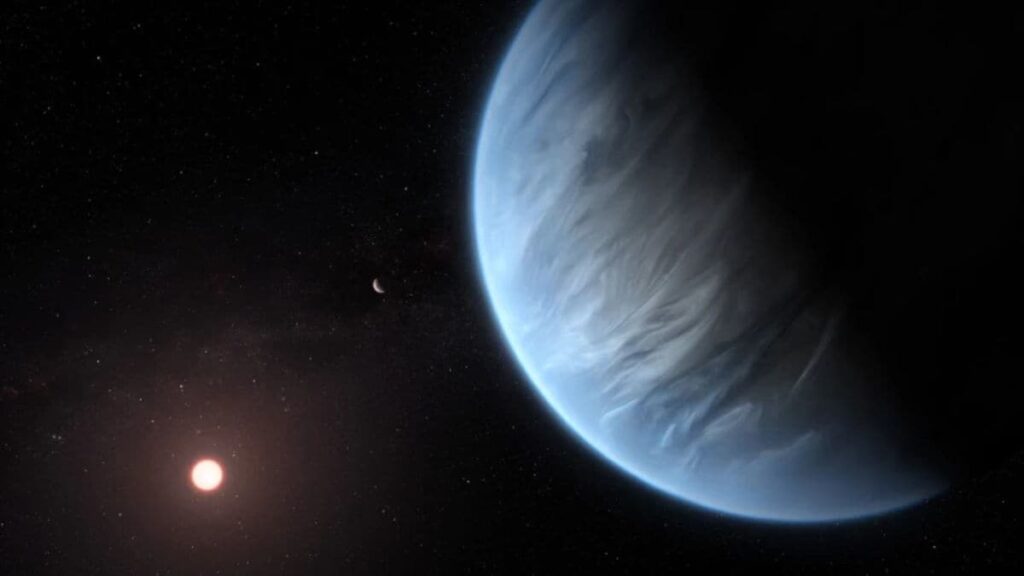A team of astronomers have reportedly discovered biological activity outside the solar system. The scientists have revealed that the distant planet, named K2-18 b, comprises more than one molecule in its atmosphere that potentially has been generated by living things. However, this revelation has made a sensation among astronomers across the world, more specifically for those who study biosignatures in exoplanet atmospheres.
According to report by Nature.com, K2-18 b is a planet that is smaller than Neptune. It lies at a distance of 38 parsecs above the Earth.
About the Discovery
Dimethyl sulphide (DMS) has been discovered by scientists from the University of Cambridge, UK, in the atmosphere of K2-18b. The DMS molecule is generated by living organisms, which has raised speculations about the potential for life on this distant planet. The scientists used the James Webb Space Telescope (JWST) to implement research. Also, the discovery happened when a molecule was detected in the starlight filtering through the planet’s atmosphere. These chemicals have raised curiosity amongst astronomers as they are generated by living organisms on the planet Earth.
This discovery first came into the light in the year 2023. However, the new revelations have been made as a result of the follow-up on similar findings. This time, the scientists used different wavelengths and a research strategy to support their discovery of molecules on the distant planet. .
Significance of this Discovery
For decades, scientists have been engrossed in studying life beyond Earth. Now that the pieces of evidence are hinting towards the potential existence of DMS or DMDS on K2-18 b. If proven, this will be a historic win for the scientists. Furthermore, this discovery is a step towards understanding planets from a broader perspective. Overall, more than 5,800 planets have been detected throughout the Universe.
Reason Behind Uncertainty by Other Researchers
The scientists are sceptical about this discovery as they doubt whether DMS or DMDS are really present or is K2-18 b is barren. While some of the researchers are not confident about the discovery, the expert team of scientists from the University of Cambridge, UK, is working extensively to provide a proven base to support their findings.


